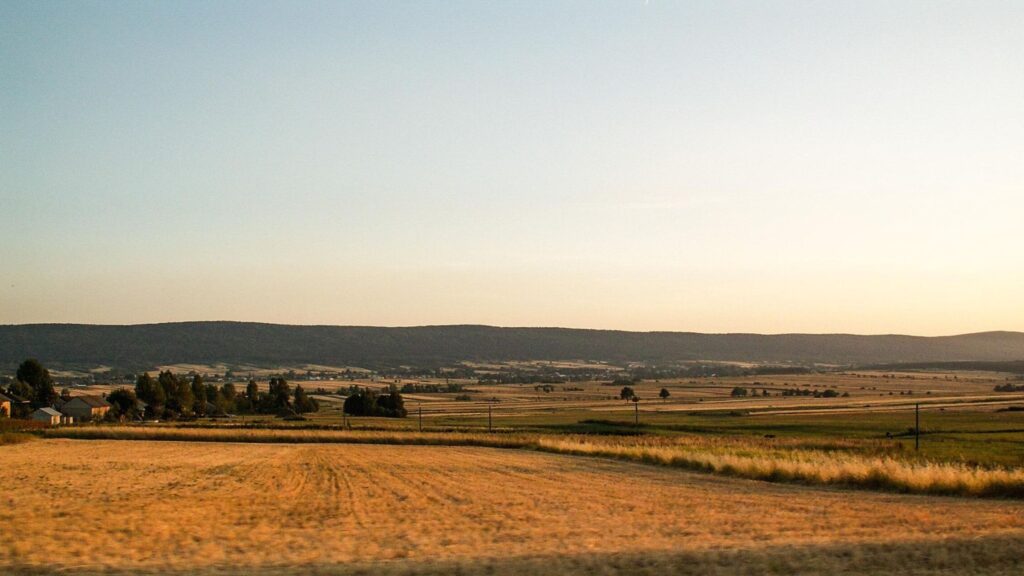Agriculture is the backbone of human civilisation and has come a long way since the early days of cultivation and plantations. Today, it is a big industry under pressure to feed over 8 billion souls on the planet. Additionally, traditional farming has been replaced by an industrial approach to maximise productivity. Amidst all this, there has been a steady increase in tourism in the agricultural sector. There could be numerous factors, so let’s learn more about the rise of agritourism—a combination of agriculture and the tourism industry —and what it means for travellers and communities.
The Roots of Agritourism
European nations were among the first to observe a rise in farm stays and the exploration of fields. A part of the reason is the hectic lifestyle of people living in the city. Today, as you can see, more people are interested in the idea of signing off over a weekend or holidays. Moreover, traditional farming communities began to become more inclusive, supplementing their income by inviting guests. As a result, the concept of agritourism gained momentum worldwide.

Why Agritourism Is Growing
Travellers are increasingly preferring natural settings over metropolitan getaways due to their authenticity, meaningful encounters, and a slower pace of travel. The majority of people reside in urban areas and are prone to digital burnout. Therefore, they want to reconnect with their roots and enjoy life, embracing the natural world. Additionally, the pandemic in 2020 played a crucial role in the global rise of tourism, amplifying people’s interest in local and outdoor activities.

Key Agritourism Experiences Travellers Seek
Most of the travellers nowadays are looking for a peaceful experience. It is something not present in the most famous places. Moreover, the famous places are full of crowds, which you’re trying to escape. That’s why agritourism becomes a way to remove yourself from civilisation and reconnect with nature.
- Staying on a working farm or ranch.
- Harvest participation or fruit gathering.
- Educational tours and hands-on animal care.
Economic and Social Impact on Rural Communities
Farming is a challenging business and often suffers from numerous setbacks and losses. However, with the rise of agriculturism, the farmers can generate revenue through sharing their daily lives and experiences. At the same time, it encourages preservation of the beautiful fields and meadows.
- Roads.
- Internet.
- Services.
You can promote local farms and areas that lead to rural development. It will help small communities retain their youth population and reduce urban migration. Thus, it is a way to offer alternatives to industrialised agriculture.
Role of Technology in Agritourism’s Expansion
We can all say many negative things about technology, but the truth of the matter is that we can’t live without it in this day and age. So, it’s time to embrace the positive role it can play in the development of agritourism. Initially, booking farm tours and guides can be done through mobile applications or websites. Moreover, people can easily find the best places using digital markets and GPS. This will help increase the number of people and disperse tourists from other areas, relieving them of excessive foot traffic.

Regional Hotspots for Agritourism
Globally, there are numerous spots ideal for agri-tours or travel. Each has its specific plantations and flora. So, depending on your mood, season or budget, you can choose the one you desire the most.
- Italy’s Tuscany region and its agriturismos.
- California’s wine country farm stays.
- Japan’s rice farms and traditional inns.
- India’s spice plantations and eco-farms in Kerala.
- Argentina and South America’s estancias.
5 Major Challenges Facing Agritourism
Every aspect of human existence comes at a price. Despite the various benefits of agritourism, it also has some flaws and challenges. So, let’s look at some of the most significant issues faced by tourism based on agriculture.
- Balancing authenticity with comfort.
- Regulatory and zoning issues.
- Environmental pressure is increasing with the footfall.
- Maintaining biosecurity.
- Food safety on working farms.
- Ensuring a consistent guest experience
The Future of Agritourism
The tourism industry is growing at a good pace, and there’s no doubt that agritourism will lead the way. However, there is a need for significant development efforts in the fields of land and ecology. It’s essential for the preservation of land and for a proper tourist experience to be achieved simultaneously. Lastly, it’s not possible without government support and policy implementation, striking a balance between knowledge and nature.
- Rise of regenerative travel.
- Micro-farm experiences.
- Virtual farm tours for education.
- Wellness tourism or nature therapy.
Final Thoughts On Agritourism
Tourism blends with agricultural themes to fulfil our desire for an authentic and sustainable experience. It plays a vital role in the economy while also educating urban citizens about the state of agriculture worldwide. Additionally, it reinforces a conscious shift toward responsible travel among tourists. Finally, you can enjoy agritourism in your country during your future travel plans. All you need is the spirit of learning and exploring!
FAQs
What is agritourism?
It is a term used to describe the blending of tourism with agricultural aspects and sites.
What are the different agritourism activities?
The different agritourism activities are given below.
- Education.
- Camping.
- Petting zoo.
- Wildlife photography.
Who is the father of agri-tourism?
In India, the pioneer of agritourism is Mr. Pandurang Taware.
What are the social advantages of agritourism?
The different advantages of agritourism are preservation, conservation, awareness, and collaboration.

